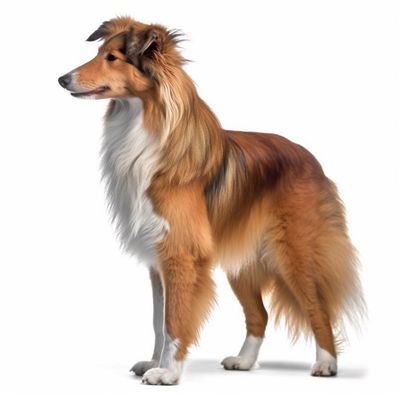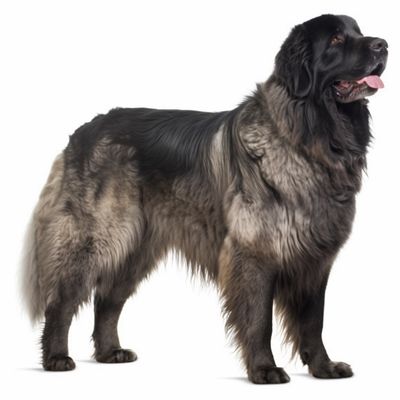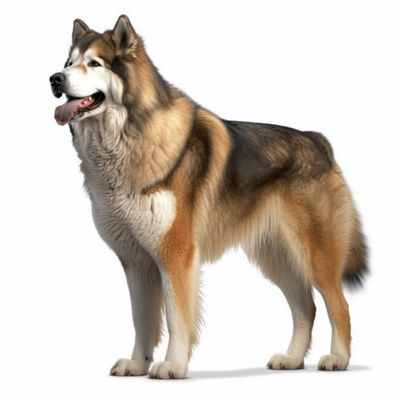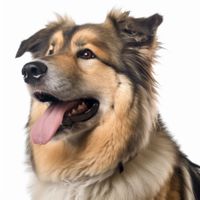Shetland Sheepdog - vs - Newfoundland - vs - Alaskan Malamute

Shetland Sheepdogs are small-sized dogs, weighing 14-27 lbs, with a height of 13-16 inches.
Shetland Sheepdogs have a high energy level and enjoy regular exercise and mental stimulation.
Shetland Sheepdogs require regular exercise, including daily walks, playtime, and training activities to keep them engaged.
Shetland Sheepdogs are highly intelligent and easy to train, making them great for various dog sports and obedience training.
Shetland Sheepdogs are highly intelligent and excel in learning new commands and tasks.
Shetland Sheepdogs can adapt to various environments but prefer homes with outdoor space for exercise and playtime.
Shetland Sheepdogs are generally good with children and enjoy being part of a family.
Shetland Sheepdogs can get along well with other pets when properly socialized.
Shetland Sheepdogs can tolerate cold climates due to their double-layered coats.
Shetland Sheepdogs can tolerate some heat, but their double-layered coats may make them uncomfortable in very hot climates.
Shetland Sheepdogs have seasonal shedding and require regular brushing to manage their double-layered coats.
Shetland Sheepdogs require regular grooming, including weekly brushing and occasional trims, to maintain their double-layered coats.
Shetland Sheepdogs tend to bark more frequently and may require consistent training to manage their barking.
Shetland Sheepdogs are generally healthy, but regular veterinary checkups and preventative care are still necessary.

Newfoundlands are extra-large dogs, weighing 100-150 lbs, with a height of 26-28 inches.
Newfoundlands have a medium energy level and enjoy regular exercise, but they are not as demanding as some other breeds.
Newfoundlands require regular exercise, including daily walks and playtime, to keep them happy and healthy.
Newfoundlands are intelligent dogs, but they can be independent thinkers, making training moderately challenging.
Newfoundlands are intelligent dogs and are known for their problem-solving abilities.
Newfoundlands can adapt to various living situations, but they need enough space to accommodate their large size.
Newfoundlands are known for their gentle and protective nature towards children, making them great family dogs.
Newfoundlands generally get along well with other pets when properly socialized.
Newfoundlands are well-suited to cold climates due to their thick, double-layered coats.
Newfoundlands may struggle in hot climates due to their thick, double-layered coats.
Newfoundlands have seasonal shedding and require regular brushing to manage their thick coats.
Newfoundlands require regular grooming, including daily brushing and occasional trims, to maintain their thick, double-layered coats.
Newfoundlands bark occasionally, usually only when necessary or provoked.
Newfoundlands may have some health issues, requiring regular veterinary checkups and preventative care.

Alaskan Malamutes are large dogs, weighing 75-85 lbs, with a height of 23-25 inches.
Alaskan Malamutes have a medium energy level and require regular exercise and mental stimulation.
Alaskan Malamutes need a significant amount of exercise, including daily walks, runs, and opportunities for play and exploration.
Alaskan Malamutes can be challenging to train due to their independent nature. Consistent, positive reinforcement and patience are essential.
Alaskan Malamutes are highly intelligent dogs and excel in various dog sports and activities, especially those involving endurance and strength.
Alaskan Malamutes can adapt to different living situations, but they need plenty of space and exercise to thrive.
Alaskan Malamutes are good with children when properly socialized and supervised.
Alaskan Malamutes can get along with other pets, but their high prey drive may require caution around smaller animals.
Alaskan Malamutes are well-suited for cold climates, thanks to their thick, double-layered coats.
Alaskan Malamutes are not well-suited for hot climates and need to be monitored for signs of overheating during exercise.
Alaskan Malamutes have thick double coats that shed heavily, especially during seasonal shedding periods.
Alaskan Malamutes require frequent grooming, including regular brushing and occasional bathing to keep their coats clean and healthy.
Alaskan Malamutes bark occasionally, usually only when necessary or provoked.
Alaskan Malamutes may experience some health issues and require additional care and attention, such as regular veterinary checkups, preventative care, and potential medication or treatments.



